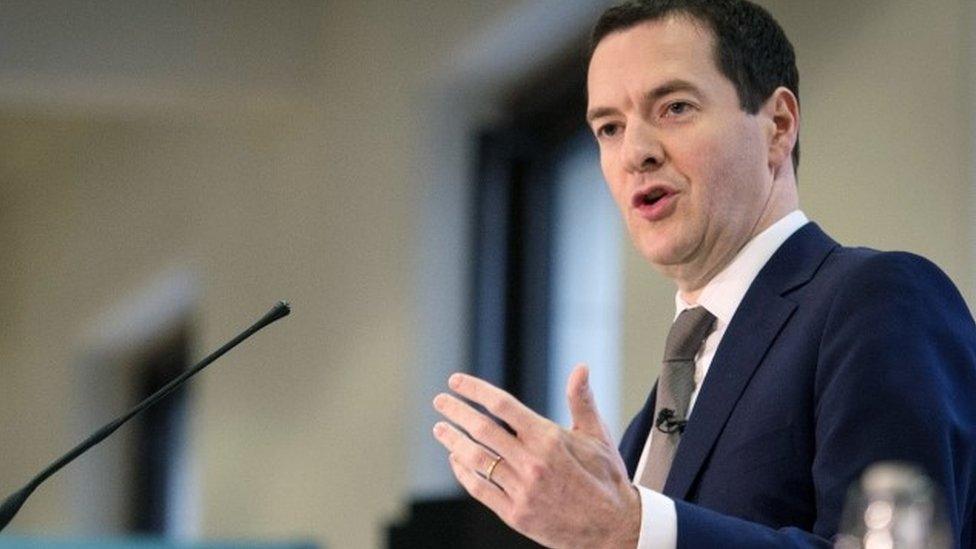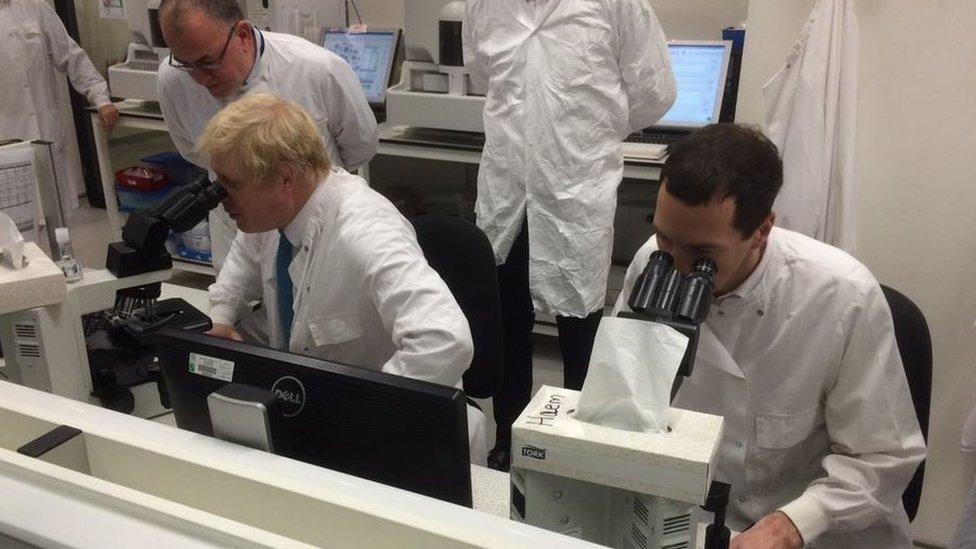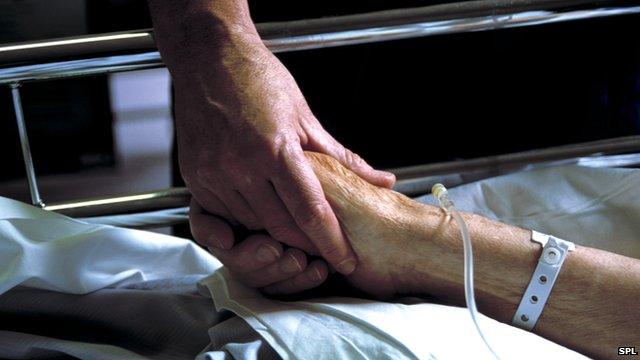George Osborne announces start of London NHS devolution
- Published

George Osborne signalled greater health devolution in the spending review
Chancellor George Osborne has signed a health devolution deal for London.
The agreement will see the launch of five pilot schemes designed to transfer power over NHS services from Whitehall to local groups.
It has the backing of Health Secretary Jeremy Hunt, London Clinical Commissioning Groups, NHS England and councils, the Treasury said.
Labour mayoral candidate Sadiq Khan said London could not wait as long as Manchester had for devolved powers.
The five pilot areas include Haringey, Barking and Dagenham with Havering and Redbridge, North Central London - which includes Barnet, Camden, Enfield, Haringey and Islington - as well as Lewisham and Hackney.
Hackney will run a health and social care integration pilot, aiming for full integration of health and social care budgets and joint provision of services. This will also have a particular focus on prevention.

Boris Johnson said it paved the way for a "revolution" in healthcare
The plan for a local-led, integrated health and social care system by 2020 backed by local authorities was outlined in the spending review, external.
Mr Osborne, who made the earlier announcement at Great Ormond Street Hospital, said it was "another crucial step in our devolution revolution and is the start of us handing over valuable healthcare power to local leaders in London".
He said it would lead to "better, more joined up healthcare in the capital".

What devolution could mean for London boroughs in five pilot areas
Haringey said it would try to tackle its "obesity crisis", above average numbers of people with mental health problems and health inequalities within the borough. It is looking at options such as setting a minimum unit price for alcohol or restrictions on gambling shops
Hospitals and GP surgeries could be sold off in Hackney and north central London boroughs including Barnet, Camden, Enfield, Haringey and Islington. The land would be used for housing and the money raised used locally or to create modern "fit-for-purpose" facilities
Barking and Dagenham hopes to plug a £400m funding gap and tackle preventable hospital admissions for people with chronic diseases, as well as address issues caused by a significant growth in its population of children and over 75-year-olds
Hackney also said funding pressures were putting its health and social care under "immense strain". It hopes combining its health and social care budgets can "transform its services". It says its pilot will create incentives for prevention and early intervention, better access to community services and the creation of safe and high quality alternatives to higher cost hospital-based or residential care
Lewisham hopes to get better value for the money spent within health and social care locally by integrating physical and mental health services alongside social care

The Treasury said that as part of the agreement the partners involved had agreed to look at the "vast NHS estate in London and increase incentives for trusts to make better use of property".
Mr Johnson said: "As we've shown through transport, policing and planning, devolution is already working in London and this agreement paves the way for a revolution in how health and social care are delivered across the capital.
"With our city's population continuing to grow, it is essential that we have a health service better equipped to manage its own resources so that it can become even more responsive to the needs of Londoners."
It was announced in February that Greater Manchester would obtain full control of its health spending from April 2016.
Mayoral candidate Mr Khan said while he supported giving London more power over health services, the city could not afford to wait as long as Manchester, which was promised control "years ago".
He said: "We must ensure that the fine print of any devolution proposal works for London, and that the proper management and financial structures are in place."
- Published25 February 2015
